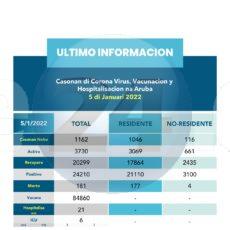
Washington, D.C., 18 March 2020 [PAHO] – The Director of the Pan American Health Organization (PAHO), Dr. Carissa F. Etienne, today called on all countries in the Americas to take urgent action to reorganize their health services and protect health professionals in order to safely care for patients with the 2019 coronavirus disease (COVID-19) and save lives.
“The message is clear- Now is the time for countries to increase their capacity to detect cases, care for patients, and ensure that hospitals have the space, supplies and staff they need to provide the necessary care,” Etienne said during her weekly teleconference with the region’s health ministers.
She urged health leaders to involve citizens and other sectors in support of public health action. “If everyone collaborates, it is not too late to contain the situation, flatten the epidemic curve and thereby avoid overloading the health services so that they can give the necessary care to all who need it.”
Since the beginning of the COVID-19 epidemic on 31 December 2019, until 17 March, 191,127 cases and 7,807 deaths were reported globally. The majority of these deaths were in China, Italy, Iran, Spain and France. As of yesterday, in the Region of the Americas, 37 countries and territories reported 5,944 cases and 19 deaths.
According to the World Health Organization (WHO), current global data indicate that 81% of COVID-19 cases are relatively mild, 14% evolve into more severe illness, and about 5% become critical, requiring supportive treatment such as oxygen and mechanical ventilation. Advanced age and pre-existing medical conditions are risk factors for severe outcomes.
The massive influx of patients requiring medical attention for COVID-19 can overwhelm hospitals’ capacity to provide care for all who need it. Sharp increases in critical illnesses have already exhausted both biomedical supplies and personnel in some countries. For this reason, Etienne urged hospitals to develop surge plans and to ensure that health personnel have the personal protective equipment and training they need to prevent infection.
“Health personnel are the first line of defense against this pandemic. We must protect them so they can take care of all of us,” she said.
Currently there is no specific treatment for COVID-19. In severe cases, timely supportive therapy is key and includes oxygen, hydration and fever and pain relief.
PAHO experts are working with ministries of health in the Americas to prepare their countries’ health services to handle increased patient flows and to strengthen infection prevention and control.
“The course of the pandemic will depend on what measures countries take,” said Etienne. She said that three main scenarios are now unfolding in the countries of the Americas: clusters of COVID-19 cases related to imported cases; outbreaks in “closed spaces” such as nursing homes; and community transmission.
Many countries have already taken action to reduce the rate of transmission and protect their populations, ranging from declaring a state of emergency to closing borders, schools and universities, and promoting social distancing.
“PAHO continues to work with countries to provide support and respond together to this pandemic,” said Etienne. “We should expect all countries to report cases. We need to reduce transmission, flatten the curve and avoid situations that can overwhelm our hospitals and our health personnel to save lives.”












